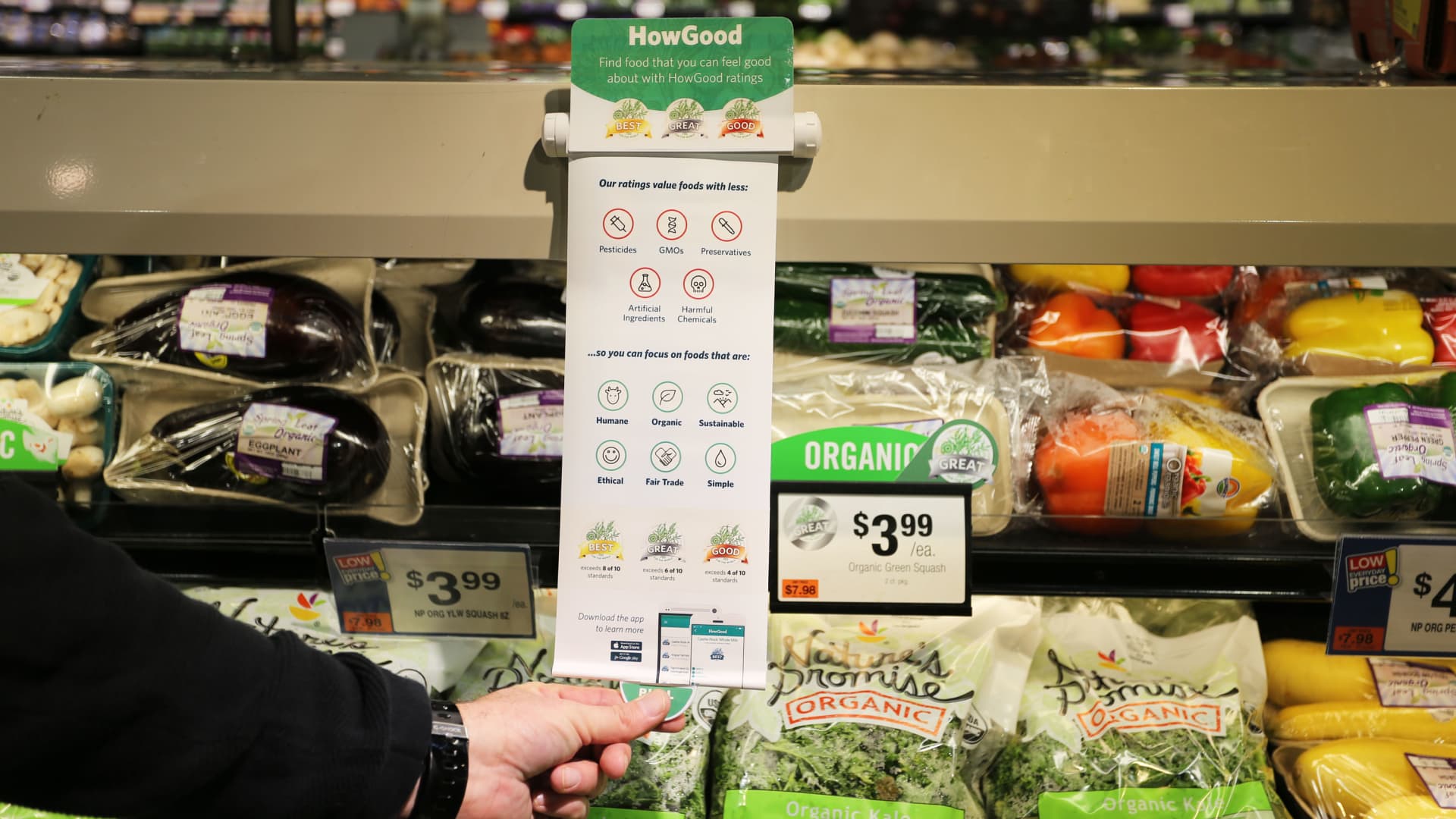
Consumers are now demanding environmental accountability in everything — from the buildings they live in to the products they purchase. Food is a big one. While more and more food companies are claiming that their products are “sustainable,” a Stone Ridge, New York-based start-up is taking a close look at those claims. The company is called HowGood.
HowGood analyzes thousands of ingredients — more than 33,000 so far, the company says — looking at factors like the product’s greenhouse gas emissions, its water usage, land usage, soil biodiversity impact, potential deforestation and concern for animal welfare.
Every ingredient in every product has a different level of environmental impact, all of which change region to region. For each product analysis, HowGood takes in close to 250 different attributes from those ingredients and boils them all down to a rating, which companies can then use to improve their products.
“HowGood provides sustainability intelligence,” said Alexander Gillett, the company’s CEO. “The idea here is that we have the largest database in the world on food sustainability, and companies get to use it now to start making better decisions and to be more transparent.”
“My friends like to say I can ruin any food group,” Gillett joked.
Companies are getting increasingly hungry for this kind of data, both to meet their sustainability goals and because more of their customers are demanding it. Chipotle uses HowGood for its Foodprint, a measure of its carbon footprint, while Kraft Heinz, a new client, is now putting some of its staples under the environmental microscope.
“We’re already looking at some really favorable, interesting things with cheese, as well as plant-based alternatives inside that same category,” said Jonah Smith, global head of environmental social governance (ESG) at Kraft Heinz. “We’re really excited about the possibility that HowGood can really help us, with their extensive catalog, look at more carbon-friendly alternatives to sourcing as well as our other ESG metrics.”
While companies like Kraft Heinz and Walmart are buying the deep data to assess their products, consumers can also use the HowGood app to check on the sustainability of products they’re buying.
Gillett says the company is seeing “inspiring” demand from product makers for the data, but he admits that a very small fraction — less than 5 % — of the millions of products in the HowGood database actually get a top rating.
“Most companies mainly complain that we rate them too harshly. And we’re OK with that. We’re OK with it being hard. It’s a hard problem to solve, and I think the great thing is those companies say that, but then they trust it,” he said.
HowGood has a staff of about 40 now but expects to triple that in the coming year. Its backers include Titan Grove, Firstmark Capital, Serious Change, Danone Manifesto Ventures, Contour Venture Partners, Great Oaks Venture Capital and Astanor Ventures. The company has raised $26.5 million so far.




